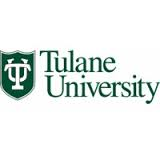What do they do?
Administer anesthetics and analgesics for pain management prior to, during, or after surgery.
Also known as:
Medical Doctor (MD), Obstetrical Anesthesiologist, Staff Anesthesiologist, Staff Anesthetist
-
-3.1%
Change
Ranks #39 in job growth rate30Job Openings
Ranks #17 in net job growth
-
Brown University
Providence, RI
-
Rutgers University-New Brunswick
New Brunswick, NJ
-
Case Western Reserve University
Cleveland, OH
-
Dartmouth College
Hanover, NH
-
Thomas Jefferson University
Philadelphia, PA
Looking for colleges that offer a specific major? Use the College Match Tool to find your best-matched schools and discover your estimated Net Price!
- Doctorate or Professional Degree (100%)
- Master's degree (<1%)
- Bachelor's degree (<1%)
- Associate's degree (<1%)
- Some college, no degree (<1%)
- High school diploma equivalent (<1%)
- Less than high school diploma (<1%)
People in this career often have these skills:
- Critical Thinking - Using logic and reasoning to identify the strengths and weaknesses of alternative solutions, conclusions, or approaches to problems.
- Active Listening - Giving full attention to what other people are saying, taking time to understand the points being made, asking questions as appropriate, and not interrupting at inappropriate times.
- Monitoring - Monitoring/Assessing performance of yourself, other individuals, or organizations to make improvements or take corrective action.
- Judgment and Decision Making - Considering the relative costs and benefits of potential actions to choose the most appropriate one.
- Reading Comprehension - Understanding written sentences and paragraphs in work-related documents.
- Writing - Communicating effectively in writing as appropriate for the needs of the audience.
- Science - Using scientific rules and methods to solve problems.
- Complex Problem Solving - Identifying complex problems and reviewing related information to develop and evaluate options and implement solutions.
- Speaking - Talking to others to convey information effectively.
- Social Perceptiveness - Being aware of others' reactions and understanding why they react as they do.
- Time Management - Managing one's own time and the time of others.
- Active Learning - Understanding the implications of new information for both current and future problem-solving and decision-making.
- Operations Monitoring - Watching gauges, dials, or other indicators to make sure a machine is working properly.
People in this career often know a lot about:
- Medicine and Dentistry - Knowledge of the information and techniques needed to diagnose and treat human injuries, diseases, and deformities. This includes symptoms, treatment alternatives, drug properties and interactions, and preventive health-care measures.
- Biology - Knowledge of plant and animal organisms, their tissues, cells, functions, interdependencies, and interactions with each other and the environment.
- English Language - Knowledge of the structure and content of the English language including the meaning and spelling of words, rules of composition, and grammar.
- Chemistry - Knowledge of the chemical composition, structure, and properties of substances and of the chemical processes and transformations that they undergo. This includes uses of chemicals and their interactions, danger signs, production techniques, and disposal methods.
- Customer and Personal Service - Knowledge of principles and processes for providing customer and personal services. This includes customer needs assessment, meeting quality standards for services, and evaluation of customer satisfaction.
- Psychology - Knowledge of human behavior and performance; individual differences in ability, personality, and interests; learning and motivation; psychological research methods; and the assessment and treatment of behavioral and affective disorders.
People in this career often have talent in:
- Problem Sensitivity - The ability to tell when something is wrong or is likely to go wrong. It does not involve solving the problem, only recognizing that there is a problem.
- Oral Comprehension - The ability to listen to and understand information and ideas presented through spoken words and sentences.
- Deductive Reasoning - The ability to apply general rules to specific problems to produce answers that make sense.
- Written Comprehension - The ability to read and understand information and ideas presented in writing.
- Inductive Reasoning - The ability to combine pieces of information to form general rules or conclusions (includes finding a relationship among seemingly unrelated events).
- Oral Expression - The ability to communicate information and ideas in speaking so others will understand.
- Near Vision - The ability to see details at close range (within a few feet of the observer).
- Written Expression - The ability to communicate information and ideas in writing so others will understand.
- Information Ordering - The ability to arrange things or actions in a certain order or pattern according to a specific rule or set of rules (e.g., patterns of numbers, letters, words, pictures, mathematical operations).
- Selective Attention - The ability to concentrate on a task over a period of time without being distracted.
- Flexibility of Closure - The ability to identify or detect a known pattern (a figure, object, word, or sound) that is hidden in other distracting material.
- Perceptual Speed - The ability to quickly and accurately compare similarities and differences among sets of letters, numbers, objects, pictures, or patterns. The things to be compared may be presented at the same time or one after the other. This ability also includes comparing a presented object with a remembered object.
- Arm-Hand Steadiness - The ability to keep your hand and arm steady while moving your arm or while holding your arm and hand in one position.
- Speech Recognition - The ability to identify and understand the speech of another person.
- Speech Clarity - The ability to speak clearly so others can understand you.
People in this career often do these activities:
- Monitor patient conditions during treatments, procedures, or activities.
- Record patient medical histories.
- Implement advanced life support techniques.
- Prepare patients physically for medical procedures.
- Administer anesthetics or sedatives to control pain.
- Examine patients to assess general physical condition.
- Position patients for treatment or examination.
- Collaborate with healthcare professionals to plan or provide treatment.
- Monitor patient progress or responses to treatments.
- Order medical diagnostic or clinical tests.
- Train medical providers.
- Refer patients to other healthcare practitioners or health resources.
- Prescribe treatments or therapies.
- Prescribe medications.
- Direct healthcare delivery programs.
- Diagnose medical conditions.
- Supervise patient care personnel.
- Schedule medical facility use.
- Provide health and wellness advice to patients, program participants, or caregivers.
- Conduct research to increase knowledge about medical issues.
This page includes data from:

 Occupation statistics: USDOL U.S. Bureau of Labor Statistics Occupational Employment Statistics
Occupation statistics: USDOL U.S. Bureau of Labor Statistics Occupational Employment Statistics









